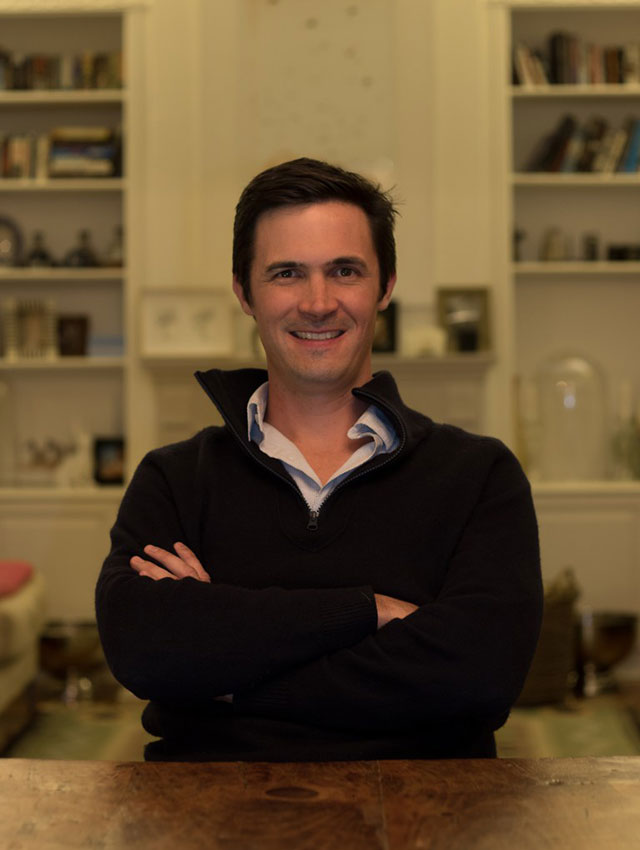
Long before smartphones, tablets, and laptops become of our daily diet, Colin Thornton spotted a business opportunity to fix home computers through his startup Dial A Nerd. Then only desktop computers existed, with an unreliable and expensive dial-up internet connection. Let’s find out what makes Dial A Nerd standout amongst a crowded market today…
What problem existed in the market?
CT: When I started in 1998 there were very few IT support companies who wanted to support home users. At the time my competitors all seemed to be focused on business customers so when I started advertising home visits the uptake was instant and people kept telling me they’d been desperate for that type of service and didn’t know where to get it.
What solution did you provide?
CT: In those days desktops were just getting into homes so there were lots of new installations and training. I must have set up thousands of email accounts for people who had never had email!
How did you know people would pay for your solution?
CT: I was in the fortunate position of not needing to do any market analysis. All of my friends and family knew I was good at fixing computers so they were constantly offering to pay me to help. I figured if friends and family were willing to pay, then the general public must be too.
How did you attract customers to your startup?
CT: I spent every spare cent on marketing. I often joked that if I could drop flyers from helicopters over Johannesburg I would have done it.
How were you different from the competition?
CT: Right at the beginning, as mentioned above, I didn’t have much competition. Later when the competition started heating up we differentiated by providing better service than everyone else. It sounds like a cliche but customers were not used to the under-promise and over-deliver principle. If we said it would take a day to fix we tried to get it back in a couple of hours. If we said it was going to cost R500 we’d invoice R300.
How much capital did you invest in your startup?
CT: I loaned R5,000 from friends and family. I spent all of it on flyers with my primary concern being: make the phone ring. It was only much later that I worried about things like accounting, bank accounts, business plans, and systems.
How long did it take for your startup to break-even?
CT: I have no idea. My understanding of accounting was so hazy that I wouldn’t have known. All I concentrated on was cashflow. I knew what my expenses were a week in advance and I just focused on having that amount of money in my bank account.
Startups are launched in bedrooms, garages, kitchens, dorms etc…where did yours operate from in the early years?
CT: My parent’s garage
When was the turning point, where it was all clear that your startup has prospects
for growth?
CT: A turning point I remember was the need for an office. I had just had a potential technician reject an offer of employment because he didn’t want to work in a garage and when I started to consider it I realized I didn’t have an option. I needed a receptionist and systems to handle bookings too. Suddenly my little backyard business started to feel like a real business.
Businesses evolve just like humans, share those stages of your startup lifecycle…
CT: I would agree that they evolve and go through ups and downs just like human beings but they don’t (or can’t) start as helpless babies as we do! Businesses need to be ‘born’ with something unique to get them through childhood and hopefully into their adult years. In our teenage years, we made many, many mistakes and acted impulsively at times. As many entrepreneurs will tell you however it’s not the (lack of) mistakes that separates good businesses from bad ones but the way those entrepreneurs deal with them and learn.
With startup growth, new opportunities come up…investors come knocking or you simply sell, what has motivated you to keep going?
CT: I enjoy what I do and can’t imagine doing anything else. Our business and industry are constantly changing so the things I’m doing on a day-to-day basis might change month to month or year to year and I love it. During the lifecycle of Dial a Nerd we had been approached for a buyout too many times to mention. However, the right partners, Turrito and MicroMega, came along at the end of last year and we’ve done a deal with them which has been brilliant for the business and everyone concerned.
Looking back to when you launched your startup, an idea is something else to running a business…how did you pay your school fees?
CT: My primary focus, in the beginning, was marketing and getting the phone to ring. I figured if the money was coming in then I could figure the rest out later, and I did. Luckily we didn’t grow too much too quickly so I had time to figure things out as I needed to. The buck stopped with me, I didn’t have an option but to learn as I went.
What legacy has this startup that you’ve nursed into maturity has built over the years?
CT: I’m confident that the business can run without me or my co-director Aaron and that’s not always easy to achieve. The legacy would be that Dial a Nerd would still employ the people it does today and would employ hundreds or even thousands going forward.
What are your impressions of the startup scene today, compared when you ventured into entrepreneurship?
CT: The startup scene seems to be much more evolved. There is lots of content available to read and plenty of people to help. I’m under the impression that working with banks is still as difficult as it always was and that raising money is even harder though. With all of the hype and content available I feel that lots of would-be entrepreneurs feel they need to mould their business to the ideals of a perfect start-up: scalability, brand, funding potential, exit strategies, etc. Sometimes it’s more important just to figure out a gap in the market, roll up your sleeves and start putting in the hard work to benefit from it. You might just find the rest falls into place.



